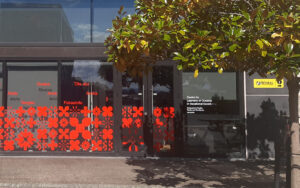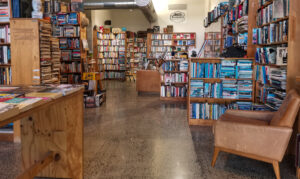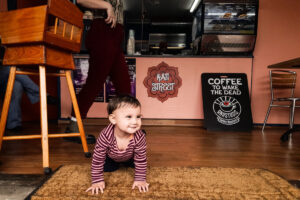Working for a sustainable future
Two women who are helping pave the way for environmental sustainability in the Waikato talk to Jesse Morgan.
On a road between Hinuera and Matamata there is an example of sustainable farming. A windbreak, as high as a light pole and as long as a train, hides the orchard from the road. It’s an open day at Southern Belle Orchards, which was the supreme winner of this year’s Waikato Ballance Farm Environment Award.
Inside a massive greenhouse in the orchard is Emily Meese. She is the partner of Talbert de Jong, whose parents own the award-winning feijoa and capsicum orchard and have been running it for the last 12 years.
Behind her is a never ending drapery of green stalks and leaves with capsicums dotted around them. A sweet smell lingers in the air.
“We didn’t expect to win at all – we thought being in the Waikato that it would all be dairy farm focused,” Meese said of their award.
Meese completed a Bachelor of Management Studies at the University of Waikato and that’s where she met de Jong. The pair are working towards taking over the orchard over the next 10 years.
Meese talks about how the plants are recycled when they are no longer needed and that when the new seedlings come in, the composted crops are used to feed the new crop. The water is also recycled. It comes from a tank, runs through some small pipes and waters the plant. The water is then collected below the rows of plants and runs into another tank where it is treated. That goes back to the first tank and the process starts all over again.
“We even use the same string that holds up the plants if we can…that string there is probably from last season,” said Meese, pointing at numerous rows of capsicum.
Meese said she probably won’t be attending Fieldays this year, but the event looms larger for another woman with a commitment to sustainability.
Waikato Regional Council’s Hamilton East offices are handy to a Turkish café called Babaganush. Environment farming systems adviser Electra Kalaugher is well known for leaving things there after a coffee or a snack. Upon her last visit she found that her bag was waiting for her.
It’s probably because she has a meeting in 15 minutes. It’s probably because she gets a phone call from one of her team members calling her back to the office. It may be because she’s forgetful. Kalaugher is a busy woman. It’s no wonder she leaves things behind.
Just a month ago Kalaugher handed in her PhD on adaptation of dairy farms to climate change. She has a clear passion for the environment. Five years ago she returned from 10 years of working overseas for the UN’s Food and Agriculture Organisation.
Kalaugher has attended Fieldays for the past five years, as a visitor, as an ambassador for the University of Waikato and for the regional council.
At Fieldays, the council is focusing on getting the message of sustaining and protecting natural assets in relation to the primary sector. This has been its main focus at previous Fieldays and at most of the other events the council has been involved with. It wants to create a partnership with the farmers, and have a positive and encouraging relationship that feeds both ways, Kalaugher said.
Meese has only attended the Fieldays as a visitor and said they probably won’t go this year because it is mainly focused on agriculture and not horticulture. She said a highlight of a previous Fielday was meeting an alpaca and that it’s good for the deals you can get and all the entertainment.
“It makes for a good day out.”




